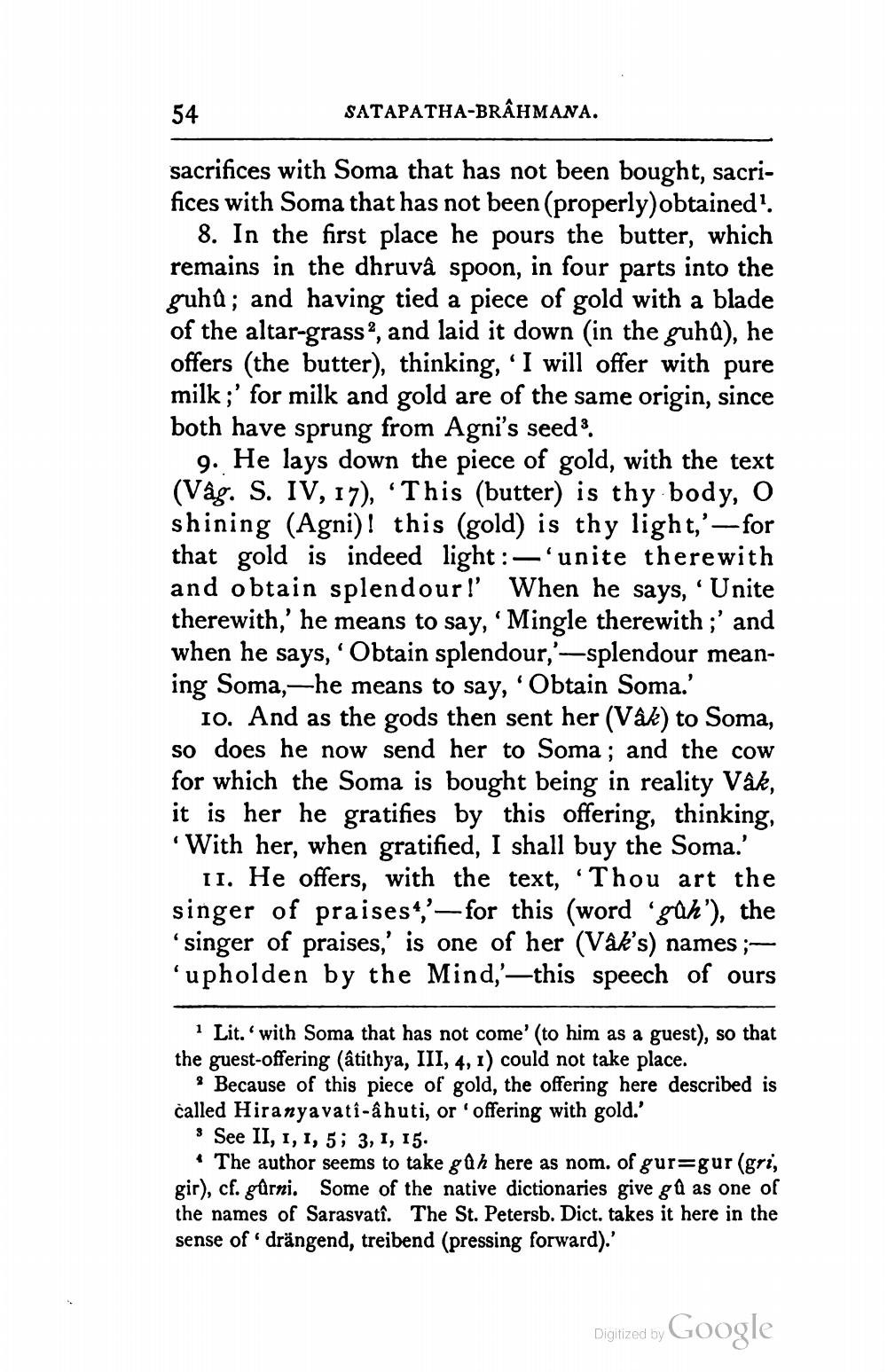________________
54
SATAPATHA-BRAHMANA.
sacrifices with Soma that has not been bought, sacrifices with Soma that has not been (properly) obtained'.
8. In the first place he pours the butter, which remains in the dhruvâ spoon, in four parts into the guhd; and having tied a piece of gold with a blade of the altar-grass?, and laid it down in the guha), he offers (the butter), thinking, ‘I will offer with pure milk;' for milk and gold are of the same origin, since both have sprung from Agni's seeds.
9. He lays down the piece of gold, with the text (Vág. S. IV, 17), 'This (butter) is thy body, O shining (Agni)! this (gold) is thy light,' — for that gold is indeed light :-'unite therewith and obtain splendour!' When he says, ' Unite therewith,' he means to say, 'Mingle therewith ;' and when he says, 'Obtain splendour,'—splendour meaning Soma,-he means to say, 'Obtain Soma.'
10. And as the gods then sent her (Vak) to Soma, so does he now send her to Soma ; and the cow for which the Soma is bought being in reality Vâk, it is her he gratifies by this offering, thinking, With her, when gratified, I shall buy the Soma.'
11. He offers, with the text, “Thou art the singer of praises“,'— for this (word 'gâh'), the ‘singer of praises,' is one of her (Vak’s) names ;'upholden by the Mind,'—this speech of ours
1 Lit. with Soma that has not come' (to him as a guest), so that the guest-offering (âtithya, III, 4, 1) could not take place.
Because of this piece of gold, the offering here described is called Hiranya vati-âhuti, or offering with gold.'
3 See II, 1, 1, 5; 3, 1, 15.
* The author seems to take gah here as nom. of gur=gur (gri, gir), cf. gurni. Some of the native dictionaries give gû as one of the names of Sarasvati. The St. Petersb. Dict. takes it here in the sense of drängend, treibend (pressing forward).'
Digitized by Google




